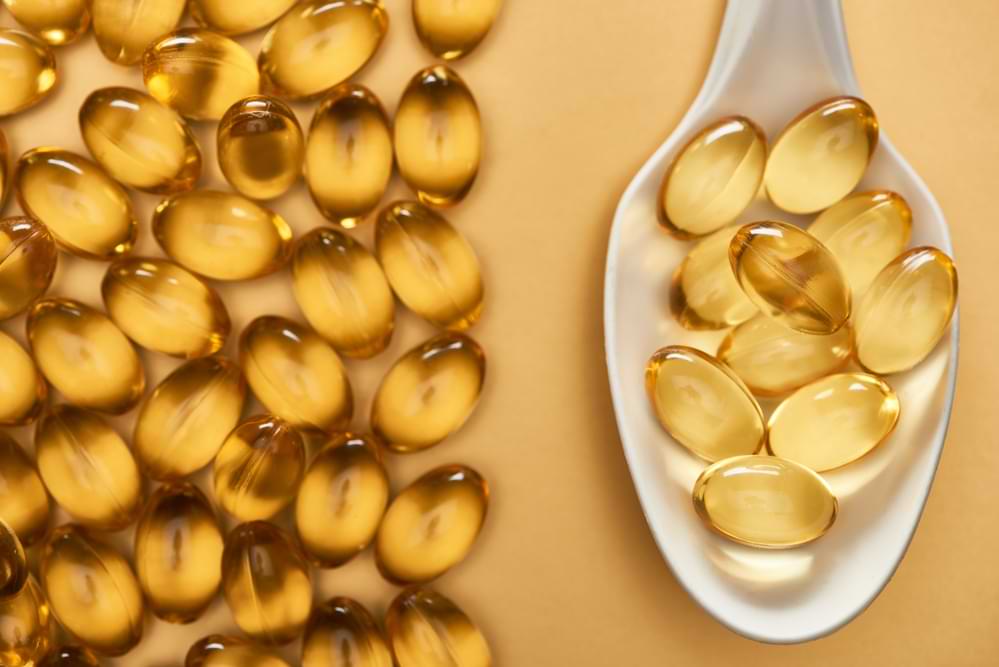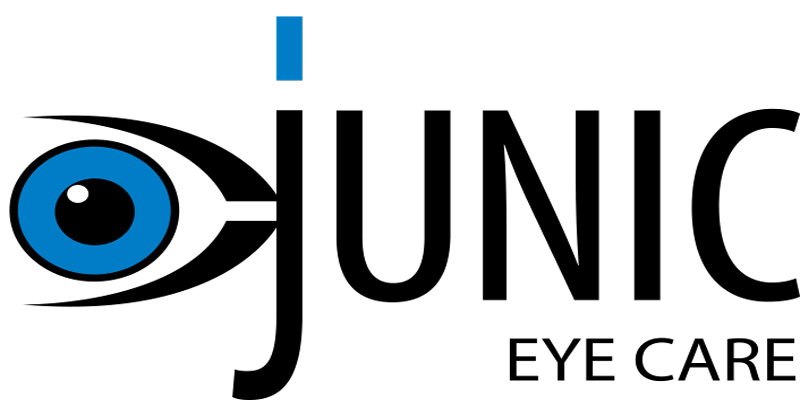Ever found yourself blinking away after a windy day in Canberra, wondering why your eyes feel rough and scratchy instead of clear and comfortable?
It’s a common myth that dry eyes are just a minor nuisance, easily ignored and seldom serious.
But as many Canberra residents can attest, in our city’s dry and blustery conditions, dry eye syndrome is far more than a fleeting irritation.
Picture this: you’re trying to enjoy an evening reading or working on your computer, but the relentless irritation in your eyes turns these simple activities into a challenge.
Contrary to what many think, effectively managing dry eyes often involves more than just eye drops; it can be closely linked to your diet and overall health. One potential ally in this battle is Omega-3 fish oil, a supplement that’s not just for general wellness but might be particularly beneficial for soothing your troubled eyes.
According to a comprehensive study involving 32,000 patients, those with higher Omega-3 intake experienced about a 17% reduction in dry eye risk compared to those who consumed minimal or no Omega-3.
I’m Juliet Menakaya, owner of the Canberra optometrist practice, Junic Eyecare, where we look beyond the surface to holistically manage dry eye syndrome. I speak with many patients about how a few simple dietary adjustments can help with managing their dry eye conditions.
One of my patients, a photographer from Ghana now living in Canberra, struggled with dry, irritated eyes exacerbated by long hours in front of a computer. After incorporating Omega-3 rich foods and supplements into his diet on my suggestion, he saw a noticeable improvement in his symptoms, finding relief from the constant dryness and irritation.
Dry eyes can often be a window into your overall health, signaling the need for not just eye care but a comprehensive wellness approach. So if itchy, scratchy eyes are holding back your productivity and enjoyment of life, why not book an appointment for a comprehensive dry eye assessment?
Or if you would like to learn more about how incorporating Omega-3 fish oil into your diet could provide the relief your eyes desperately need, keep reading.
Omega 3 Fish Oil – A Natural Remedy
In the Omega-3 family, you’ve got DHA (Docosahexaenoic Acid) and EPA (Eicosapentaenoic Acid) – these are the guys you find in fish. They get straight to work in your body, especially in helping keep your eyes well-lubricated. Then there’s ALA (Alpha-Linolenic Acid), found in plants like flaxseeds and walnuts. It’s good too, but your body has to do a bit of work to turn it into the kind of Omega-3 your eyes love. Among the three main types of Omega-3 fatty acids, DHA and EPA are generally considered more effective for helping with dry eyes than ALA.
From my experience at Junic Eyecare, I’ve seen how adding Omega-3 supplements to your diet can make a real difference for patients with dry eyes. It’s not a magic cure, but it’s a simple, natural way to help out those tired, scratchy eyes.
And just a quick heads-up: this is general advice. For a plan that’s tailored just for you, it’s always best to chat with a dietician.
| Omega-3 Fatty Acid | Role in Eye Health | Benefit for Dry Eye Relief | Typical Food Sources |
|---|---|---|---|
| DHA (Docosahexaenoic Acid) | Structural component of retinal cells, visual processing | Supports overall eye health | Fatty fish like salmon, trout, and sardines; algae oils |
| EPA (Eicosapentaenoic Acid) | Anti-inflammatory properties | Reduces inflammation on the eye’s surface | Oily fish such as mackerel, herring, and anchovies |
| ALA (Alpha-Linolenic Acid) | Precursor to EPA and DHA | Limited direct benefit for dry eyes due to low conversion rate to EPA and DHA | Flaxseeds, chia seeds, walnuts, plant oils (flaxseed oil, soybean oil), and green leafy vegetables |
Balancing Omega-3 Intake: Dosage and Safety
When it comes to balancing your Omega-3 intake, I know there are a few questions that might pop up. Like, how much is too much? And are there any side effects to watch out for? It’s all about finding that sweet spot. Too little, and you might not see the benefits; too much, and you could experience some mild side effects, like a fishy aftertaste, or in rare cases, stomach upsets. It’s a bit like seasoning food – just enough can enhance the flavor, but overdo it, and it’s all you can taste.
Before you start adding more fish to your diet or taking fish oil supplements, it’s wise to have a chat with your healthcare provider. This is especially important if you’re on medications like blood thinners, as fish oil can sometimes affect how these medications work.
Let’s not forget, Omega-3s are not just good for dry eyes; they’re like a multi-tool for health. They can help keep your heart ticking along nicely, might give your brain a bit of a boost, and even keep your joints moving smoothly. It’s like giving your body a little bit of love with every dose.
Now, speaking of Omega-3s, let me introduce you to Lacritec. It’s a supplement we often recommend at Junic Eyecare. Lacritec is designed specifically to target dry eye symptoms. It’s not just any fish oil; it’s a carefully balanced blend that supports your eyes and overall health.
So, if you’re thinking about giving Omega-3s a try for your dry eyes, or just for a health boost in general, Lacritec might be a good place to start. And of course, if you’ve got questions or concerns, pop into Junic Eyecare. We’re here to chat about how you can find the right balance for your health and lifestyle.
If you’d like to learn about more Omega-3 options, watch the following video from Doctor Eye Health.
Junic Eye Care: Additional Therapies for Enhanced Relief
At Junic Eye Care, we go the extra mile to make sure you get the best relief for your dry eyes. We use some modern diagnosis tools like the Oculus 5M to get a super accurate picture of your eye health – precision matters when it comes to your eyes.
Apart the dietary tweaks and Omega-3 supplements we’ve already suggested, we’ve got a few tricks up our sleeve to tackle dry eyes. There’s something called Meibomian Gland Expression – it sounds fancy but it just means we help your eyes produce more of those natural oils that keep them moist. Plus, we’ve got comfy Bruder eye masks that bring relief with a touch of warmth. And then there’s Blephex debridement, which basically cleans up your eyelids by getting rid of gunk and other stuff that doesn’t belong there.
Our aim? To make sure your eyes feel comfy and your vision is crystal clear. So, if you’re tired of dealing with dry eyes, we’ve got you covered with a combo of dietary advice, Omega-3 goodness, and these fantastic therapies to keep your eyes in top shape.
Making Lifestyle Adjustments for Eye Health
Now, let’s talk about some easy lifestyle adjustments you can make to boost your eye health alongside those dietary changes.
First off, stay hydrated! It might sound simple, but drinking enough water helps maintain the moisture balance in your eyes. So, keep that water bottle handy.
Next, remember to take regular breaks from your screens. We get it, life can be pretty digital these days, but your eyes need a breather. Follow the 20-20-20 rule: every 20 minutes, take a 20-second break, and look at something 20 feet away. It’s a mini eye workout!
Oh, and don’t forget those sunglasses when you’re out and about in the Canberra sunshine. They’ll not only protect the surface of your eyes from wind and dust but also protect them from harmful UV rays.
Lastly, a balanced diet doesn’t just include Omega-3s. Foods rich in vitamins A, C, and E, as well as zinc, can also be eye-friendly. Think colorful fruits and veggies, nuts, and whole grains.
So, along with some tasty Omega-3-rich foods, these simple lifestyle tweaks can add up to big improvements in your eye health. We’re here to help you see your world in the clearest, most comfortable way possible.


Regular Check-ups and Professional Guidance
Now, I can’t stress this enough – regular eye check-ups and expert guidance can make a world of difference in managing your dry eye symptoms. At Junic Eyecare, we’re here to be your eye health allies.
Booking regular eye exams with us is like giving your eyes a spa day. Our team of experienced optometrists will carefully assess your eye health, including checking for any signs of dry eye syndrome. These exams are your proactive step in catching and addressing eye issues early on.
But that’s not all – we’re not just here to check your eyes and send you on your way. We provide tailored recommendations and solutions to suit your unique needs. Whether it’s dietary advice, lifestyle adjustments, or specific treatments, we’ve got you covered.
So, why wait until your eyes feel like sandpaper? Schedule a visit with us at Junic Eyecare, and let’s keep your peepers feeling fresh, comfortable, and healthy.
Frequently Asked Questions
Is it safe to take Omega-3 fish oil everyday?
According to the American Heart Association (AHA), the recommended safe daily intake of fish oil supplements is up to 3 grams. To put this into perspective, it’s roughly equivalent to around six standard fish oil capsules, each containing 500 milligrams of fish oil.
Who should not take Omega-3 oil?
Before considering fish oil supplements, consult your doctor, especially if you’re on medication (particularly blood thinners), have underlying health conditions, use hormonal medications, or consume more than two alcoholic drinks daily, as these factors may interact with or affect the suitability of fish oil supplementation.
Is it better to take fish oil at night or in the morning?
Fish oil supplements, containing Omega-3 fatty acids, offer long-term health benefits rather than immediate results, so there’s no specific timing required for optimal effectiveness. To maximize benefits, take fish oil consistently with food, at a convenient time.
Besides the eyes, which organs does Omega-3 help?
Omega-3 fatty acids, a form of polyunsaturated fat present in foods and supplements, play a vital role in cell membrane composition, cell receptor function, and various bodily processes, including blood clot regulation and inflammation reduction. These essential fatty acids have diverse health benefits, contributing to lung, heart, brain, and blood vessel health.
How should Omega-3 fish capsules be stored?
Storing your fish oil capsule supplement in an airtight container is crucial to prevent oxidation. After opening, refrigeration is recommended as factors like light exposure and higher temperatures can cause fish oil to deteriorate, spoil, or become rancid more quickly due to chemical reactions with oxygen.
Conclusion and Call to Action
So there you have it! We’ve uncovered one of the secrets to soothing those irritating dry eyes, and it’s not as tricky as you might think. The first step is to recognize that dry eyes are more than just a minor annoyance, especially here in Canberra where our unique climate can make things even tougher.
Now, it’s true that Omega-3 fish oil can be your eye’s best friend in this battle. It’s like a soothing balm for those scratchy peepers. But remember, this is general advice we’re dishing out here. For a personalized plan tailored just for you, it’s always a smart move to chat with a dietician.
Remember, managing dry eyes and keeping your overall health in check is within your grasp. Take action today by booking a comprehensive dry eye assessment at Junic Eyecare. Our team of expert optometrists is here to provide down-to-earth guidance and treatments that will leave your eyes feeling fresh, comfy, and healthy.
Don’t wait; your eyes deserve some TLC!
To visit our optometry practice, click the “Book Online” button at the top of the page or call (02) 6152 8585 today.
You’ll find our clinic conveniently located in the Molonglo Health Hub, just a short 10 minute drive from central Canberra, with plenty of free parking when you get here.

CANBERRA OPTOMETRIST
Juliet obtained her Doctor of Optometry degree from the University of Benin, Nigeria in 2006. She completed an internship programme before migrating to Australia, where she completed a master’s degree in public health at the University of Sydney in 2014. Following this, Juliet obtained a Master of Orthoptics from the University of Technology Sydney (UTS) in 2017.
Juliet has completed her competency in optometry examination with OCANZ (Optometry Council of Australia and New Zealand), and obtained her ophthalmic prescribing rights from ACO (Australian College Of Optometry Victoria). Juliet has worked in various positions, including retail Optometry, the Ophthalmology Department at Canberra Hospital, and more recently, at the John Curtin School of Medical Research (ANU).
As a dedicated Canberra optometrist, Juliet is passionate about helping people with low vision, and binocular vision anomalies hence her interests in Low Vision Rehabilitation, Eccentric Viewing Training and Paediatric optometry.

